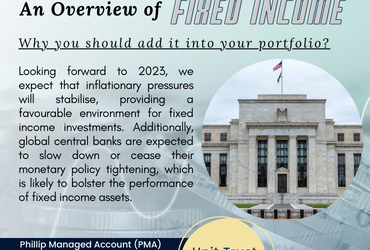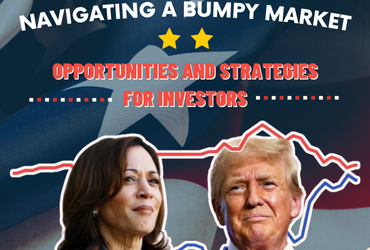
Equities and bonds are commonly favoured by many investors, while commodities are often overlooked as an investment option. This may be due to various reasons, including a lack of understanding and limited access to the necessary resources or platforms to invest in commodities. Historically, investing in commodities has required specialised knowledge and access to futures markets or physical commodities, which not all investors may have. Additionally, the volatility in commodities prices can pose a challenge for investors, making it more difficult to predict price movements and potentially leading to greater fluctuations in returns. Despite these challenges, investing in commodities can offer diversification benefits to a portfolio, including a hedge against inflation and reduced overall risk through low correlation with equities and bonds. The correlation between commodities and other asset classes is shown in the figure below. Generally speaking, commodities tend to exhibit a low correlation with other asset classes.

Source: Morningstar Direct, reproduced by PCM
Although commodities included in commonly traded commodities indices may not be easily investable directly, futures contracts on commodities are a widely used synthetic proxy for such investments. Consequently, the components of these indices reflect the price performance of exchange traded futures contracts that are linked to the underlying commodities. When a futures contract nears its expiration date, it is replaced by an identical contract with a later expiration to ensure the continuity of each index component. This process, referred to as “rolling,” facilitates the index’s exposure to that commodities future by transitioning to the next contract. Hence, each underlying component tracks a series of futures contracts relating to a single commodity. The Bloomberg Commodity Index (BCOM) is frequently used to monitor the performance of commodities. Underlying futures contracts of BCOM undergo the rolling process every 2 months; with each commodity having designated rolling schedule.
Below is a list of the components included in the BCOM, along with their corresponding futures contracts, expiry and weightage.

Source: Bloomberg, as of 26 April 2023.
Commodities Congestion
Most commodities indices including BCOM roll their futures contracts in five days starting on the 5th business day of the month and ending on the 9th business day of the month. As a result, during this period there is a substantial amount of similar trading activity when the ‘rolling’ process is occurring, causing an inefficiency or “congestion” in the commodities market. Investors trading during these periods may face strong ‘opposing’ market forces that naturally moves the market against commodities buyers. This trading pressure will naturally move the market against investors i.e., causing them to sell lower and lower and buy higher and higher.
Commodities Congestion Alpha
Bank of America (BofA) created a new “smart roll” index that is identical to BCOM (ex-Lean Hog, as Lean Hog is not Shariah compliant) except for that has a rolling process over 15 days before BCOM begins its rolling process, it can potentially help investors to capitalise on the market pressure that is exerted as BCOM begins its roll because:
- we are rolling equally over 15 days, not 5
- the amount of notional invested in our new index will be a fraction of the size of the amount invested globally in the BCOM
The strategy will ‘long’ the “smart roll” index and ‘short’ the benchmark BCOM (ex-Lean Hog) to create the congestion alpha strategy. This is able to generate a return as there will be much less pressure during the rolling period. Therefore, we would expect the pressure of selling lower and lower and buying higher and higher to be much reduced. Except for the different rolling period, the long and short leg will be the same; therefore, the final index (BABXEVFL) will have very little directional exposure to commodity markets. The returns come from the fact that we long an index which is more efficient at replicating the commodity investment than the benchmark BCOM index.
The figure below shows a comparison between the performance of BABXEVFL and BCOM.

Source: Bloomberg, reproduced by PCM
Private Managed Account (PMA) Alpha Strategy
Phillip Capital Management Sdn Bhd (PCM) is pleased to launch a structured product that makes investing into commodities possible. The structured product is only available for sophisticated investors as defined by The Capital Markets and Services Act 2007 (CMSA). Please click the link to access our Placemat. You may email us at cse.my@phillipcapital.com.my if you require any further information.
Disclaimer:
The information contained herein does not constitute an offer, invitation or solicitation to invest in Phillip Capital Management Sdn Bhd (“PCM”). This article has been reviewed and endorsed by the Executive Director (ED) of PCM. This article has not been reviewed by The Securities Commission Malaysia (SC). No part of this document may be circulated or reproduced without prior permission of PCM. This is not a collective investment scheme / unit trust fund. Any investment product or service offered by PCM is not obligations of, deposits in or guaranteed by PCM. Past performance is not necessarily indicative of future returns. Investments are subject to investment risks, including the possible loss of the principal amount invested. Investors should note that the value of the investment may rise as well as decline. If investors are in any doubt about any feature or nature of the investment, they should consult PCM to obtain further information including on the fees and charges involved before investing or seek other professional advice for their specific investment needs or financial situations. Whilst we have taken all reasonable care to ensure that the information contained in this publication is accurate, it does not guarantee the accuracy or completeness of this publication. Any information, opinion and views contained herein are subject to change without notice. We have not given any consideration to and have not made any investigation on your investment objectives, financial situation or your particular needs. Accordingly, no warranty whatsoever is given and no liability whatsoever is accepted for any loss arising whether directly or indirectly as a result of any persons acting on such information and advice.






